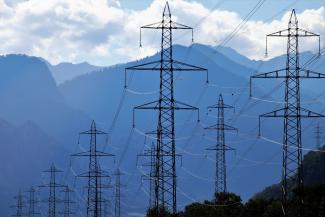PPP Sectors
This section share resources on various industry sectors where Public-Private Partnerships (PPPs) play a crucial role. Each sector offers unique challenges and opportunities for PPPs due to differing legal, regulatory and investment considerations:
Power Sector
-
Role of PPPs: PPPs are instrumental in power sector reforms, legislation, regulation, and the development of Independent Power Projects (IPPs).
-
Challenges: Legal and regulatory frameworks vary significantly across jurisdictions, affecting the role of PPPs.
-
Opportunities: PPPs can drive development in economies at different stages, from emerging markets to developed countries.
Sub-National and Municipal
-
Role of PPPs: Local governments use PPPs to deliver essential infrastructure services such as waste management, water supply, electricity, healthcare, education, urban transport and street lighting.
-
Challenges: PPPs at the sub-national level face unique legal and regulatory issues, as the traditional sources of financing are often inadequate to fund local and regional investment needs and local agencies often lack capacity and resources to deliver quality services.
-
Opportunities: The Municipal Public-Private Partnership Framework tool is designed to help local governments implement PPPs, considering their specific needs and challenges.
ICT and Telecommunications
-
Role of PPPs: Governments focus on creating a regulatory environment that supports digital economy growth and ensures robust telecommunication infrastructure.
-
Challenges: Key issues include data protection, privacy, and adapting to rapidly evolving digital technologies.
-
Opportunities: PPPs can be leveraged to build and maintain essential digital infrastructure, supporting a thriving ICT sector.
Transportation Infrastructure
-
Role of PPPs: PPPs are used to build, renovate, operate, and maintain transportation infrastructure like airports, ports, railways, roads, and urban transport.
-
Challenges: Projects in this sector require substantial investment and have long-term implications, entailing both the construction of new infrastructure, as well as the refurbishment and expansion of existing infrastructure.
-
Opportunities: PPPs can enhance the efficiency and effectiveness of transportation services, crucial for trade and economic growth.
Water and Sanitation
-
Role of PPPs: Governments are increasingly using PPPs to meet the Sustainable Development Goal 6, focusing on clean water and sanitation by 2030.
-
Challenges: Improving access and service quality to meet the SDGs cannot be done without massive investment.
-
Opportunities: PPPs can provide the necessary financing and operational expertise to achieve these critical environmental and public health goals.
Resources
Explore the sections below or search our Library for resources on Infrastructure Finance and PPPs.
Note/s:Disclaimer: The resources on this site is usually managed by third party websites. The World Bank does not take responsibility for the accuracy, completeness, or quality of the information provided, or for any broken links or moved resources. Any changes in the underlying website or link may result in changes to the analysis and recommendations set forth on the Public-Private Partnership Resource Center. The inclusion of documents on this website should not be construed as either a commitment to provide financing or an endorsement by the World Bank of the quality of the document or project. If you have any comments on any of the links provided on the Public-Private Partnership Resource Center, please get in touch here






